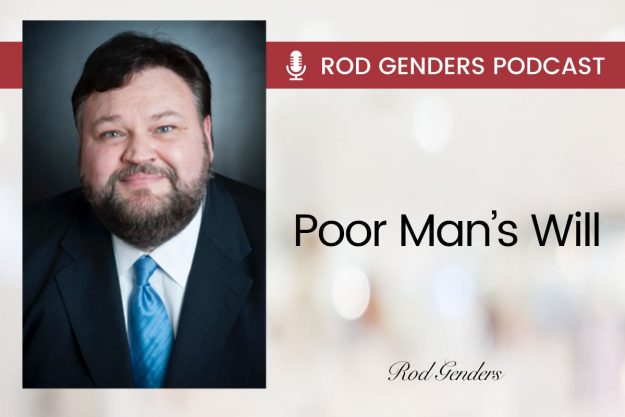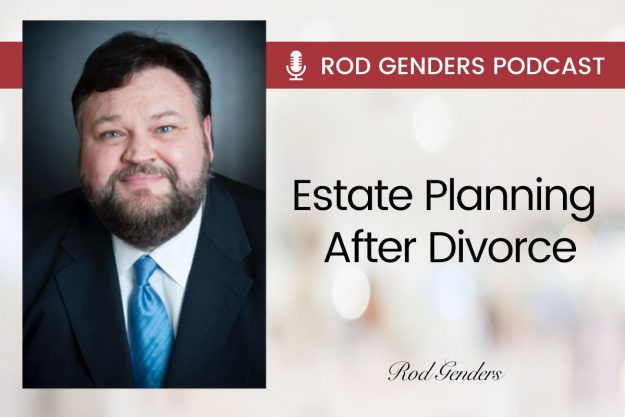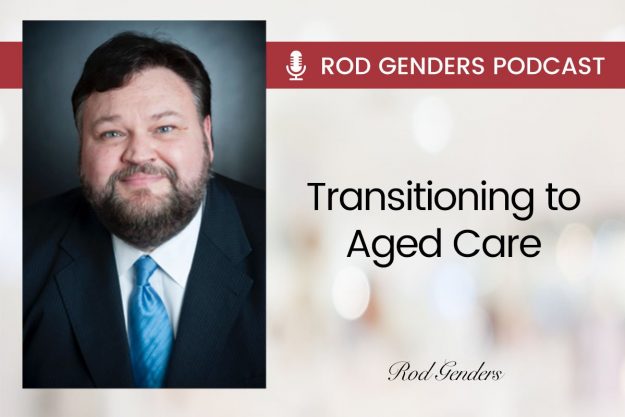Rod Genders is a senior Australian lawyer specialising in Wills and Estate Planning, Probate and Estate Administration, Trusts and Guardianship and Inheritance Claims and Contested Estates in South Australia. His boutique specialist law firm, which was founded on 1848, is one of the oldest and most respected in Australia. Rod is an international author and speaker. Rod is the 3rd generation of Genders in the law and has been practising specialised law since the mid 80’s. For over 10 years he served on the Council of the Law Society of South Australia and is a senior member of its Succession Law Committee. For 8 years Rod was a founding committee member of the South Australian branch of the London-based Society of Trusts and Estate Practitioners (STEP) and was the founding Chair of the international STEP Digital Assets Special Interest Group. For over 25 years Rod has chaired a private committee enquiring into the affairs of protected persons. He is a member of the Law Council of Australia, a member of the Notaries Society of South Australia and an associate member of the American Bar Association.
Here’s a quick roundup of some interesting news items from the world of Wills and estates.
Hoist on his own petard? Father who denied paternity is excluded from dead child’s estate
A UK Court has decided that the substantial estate of a mentally disabled child who died without a Will should be distributed to his mother and his foster family.
The court excluded the child’s biological father from inheriting a share because he had denied paternity and played no part in the child’s life.
Forget about religion or politics. If you want to start an argument on Facebook, try talking about the possibility of someone’s Will potentially being contested.
Boy, does that get people riled-up!
I’m always trying to educate people about Wills and estates, and the topic that most divides opinion relates to what is called ‘testamentary freedom’.
Most people in Australia badly misunderstand what happens to their superannuation after they die.
The biggest mistake people make in this area, is thinking that they can give their super to whomever they wish outside of their Will.
In fact, federal Australian legislation places substantial restrictions on who can receive your super after you’re gone.
Sometimes the Executor of a Deceased Estate gets pressure from family and other beneficiaries to do questionable things in the administration of the Estate.
Here are a few of the higher-risk demands frequently directed at nervous Executors by pushy relatives:
1. Obtain a Grant Of Probate As Quickly As Possible
Sometimes relatives and other potential beneficiaries might push an Executor to go faster than they should. Almost always, those beneficiaries will have their own interests at heart, without necessarily considering your rights, duties and responsibilities as Executor, nor the other interests attaching to a Deceased Estate. A prudent Executor might do well to remember the adage: Good. Fast. Cheap. Pick 2.
In South Australia, generally Probate cannot be applied for until at least 28 days after death. In certain circumstances an urgent application can be made faster than this, however special reasons need to be proven.
“You never know anybody until you’ve shared an inheritance with them”
Challenges to Wills are far less common than challenges to estates. A Will can be contested or challenged when it is alleged that :
The Will was executed under undue influence from others;
The Will was executed when the testator lacked capacity to understand what he/she was doing. This is increasingly common due to the rise of dementia in our ageing population;
Joint accounts with other people are a common method for ageing persons seeking help with money management, but this can cause problems.
What is Joint Tenancy
Joint Tenancy is used often by couples as a means of owning shared assets. There are some good reasons to do this, but there are also some drawbacks.
Joint accounts are often referred to as a “poor man’s Will” because they allow an individual to give assets to another upon death without going through the probate process. Some people have the perception from hearing horror stories that probate will consume the entire estate.
Your ‘Will’ is a legal document that tells the world what you want to happen to your estate after you’re gone.
Your ‘estate’ is everything you own or control. It can include real estate, bank accounts, investments, shares, insurances, superannuation, vehicles, personal possessions and all manner of other assets.
It can also include intangible assets like goodwill, royalties, intellectual property and various legal rights.
Next week marks the beginning of World Alzheimer’s Month and Dementia Awareness Month. Without a medical breakthrough, the number of people with dementia in Australia is expected to increase to 536,164 by 2025 and to 1,100,890 by 2056.
World Alzheimer’s Day is on 21 September. Here at Genders and Partners, we will be honouring our clients and their caregivers who are battling Alzheimer’s and Dementia by posting on social media in order to spread awareness and start conversations about how to make life easier for those battling through these devastating diseases.
After a marriage breaks down, no matter how old we are or whether we have children, it is important to consult a lawyer specialising in estate planning to make sure that we have sorted out our legal affairs for our new life once the divorce decree is final.
The very nature of a marriage (historically) is “to join two people together” and this blurs the lines between who owns what.
- How Relocation Financing Can Help
- Why Comparing Home Loans is a Good Idea
- How to Improve Prospects of Getting a Home Loan
An interview between Rod Genders (senior Australian lawyer specialising in Wills and estates) and Cheryl Cocks (mortgage broker with Aussie)





















